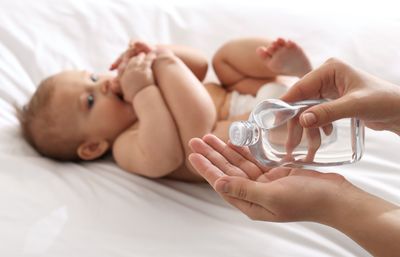WHEN MY CHILD WAS a newborn, my help always lamented the fact that I didn’t allow her to carry out certain practices on my baby. Chief of these: pouring warmed sesame oil into the nose, ears and mouth of my newborn! My help, who was a seasoned maalishwali, insisted that she had carried on with this practice at many homes and had never recorded any reports of anything untoward happening to her wards. Thankfully, her reassurances didn’t embolden me to try this out.
Scientific observation and clinical findings have shown that this practice is a common cause for both mortality and morbidity (onset of symptoms or incidence of illness) in infants. The range of symptoms shown by a baby subjected to such a practice has been termed oil aspiration pneumonia or lipoid pneumonia by the medical community.
This condition is primarily characterised by obstruction to the airway and interstitial pneumonitis, which is the thickening of the interstitium—the lace-like network providing support for the lung’s air sacs.
Most babies or older children who are diagnosed with oil aspiration pneumonia display, on hospital admission, shortness of breath, mild to severe cough and fever, crepitations (crackling noises from the lungs) and segmental collapse of the lung (revealed through chest radiographs).
Unfortunately, using oil as an overall cleanser on babies is widely prevalent in many regions of India. Families do not anticipate any problems because oil is generally considered harmless. However, almost all oils, including castor oil, mineral oil, ghee and cod liver oil, can be aspirated (choked upon) even when the tiniest amount is administered carefully.
So though massage has its own set of benefits, pouring oil into the ears, nose or throat should be completely abandoned. A baby’s throat needs no cleaning. Its gums and teeth (if present) can be cleaned with the help of baby toothbrushes. The tongue can be cleaned with a special infant tongue cleaner, available in many baby care shops.
Next issue: Traditional medicine and babies


